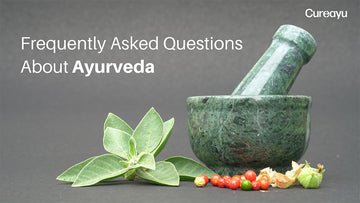Ayurveda Questions and Answers
Ayurveda, the ancient Indian system of medicine, has been practiced for thousands of years, offering holistic solutions for health and well-being. It focuses on balancing the body, mind, and spirit through natural remedies, diet, and lifestyle changes. With the increasing popularity of Ayurveda globally, many people have questions about how it works, its benefits, and how to incorporate it into their daily lives. Below are some of the most frequently asked questions about Ayurveda, along with detailed answers to help you better understand this time-tested healing system.
Also Read: Exploring the Difference Between Ayurveda and Homeopathy: An Insightful Comparison
1. What is Ayurveda?
Ayurveda is a traditional system of medicine originating in India over 5,000 years ago. It focuses on the balance between mind, body, and spirit, aiming to promote health and prevent disease through natural remedies, dietary changes, meditation, and yoga. Ayurveda is based on the concept of the five elements (earth, water, fire, air, and ether) and three bodily doshas (Vata, Pitta, and Kapha), which represent different physiological functions.
2. What are the three doshas in Ayurveda?
The three doshas—Vata, Pitta, and Kapha—are fundamental concepts in Ayurveda, representing different energies in the body:
- Vata: Composed of air and ether, Vata governs movement and is associated with creativity and flexibility.
- Pitta: Made of fire and water, Pitta controls digestion, metabolism, and energy production.
- Kapha: A combination of earth and water, Kapha governs structure and stability in the body, offering strength and immunity.
Also Read: 10 Top Cooling Herbs in Ayurveda: Beat the Heat Naturally
3. How can I determine my Ayurvedic body type?
Your Ayurvedic body type, or Prakriti, is determined by the balance of the three doshas at the time of birth. You can consult an Ayurvedic practitioner to assess your physical characteristics, mental tendencies, and lifestyle preferences. There are also online quizzes available to give you a general idea of your dosha type (Vata, Pitta, or Kapha).
4. Can Ayurveda cure diseases?
Ayurveda aims to balance the body's natural energies to prevent diseases and improve overall health. While it can effectively manage chronic conditions and support the healing process, Ayurveda does not claim to "cure" diseases in the modern medical sense. It emphasizes long-term wellness and disease prevention through diet, lifestyle changes, and herbal remedies.
5. Is Ayurveda scientifically proven?
Many aspects of Ayurveda, such as the use of herbs like turmeric, ashwagandha, and ginger, have been validated by modern scientific research. However, not all Ayurvedic practices have been rigorously studied using Western scientific methods. Despite this, Ayurveda has been used successfully for millennia to promote health and treat ailments.
Also Read: Enriching Benefits of Amla: The Miracle Fruit of Ayurveda
6. Can Ayurveda and modern medicine be used together?
Yes, Ayurveda and modern medicine can complement each other. Many people combine both systems to benefit from holistic healing and the strengths of modern diagnostics. However, it’s essential to consult with both an Ayurvedic practitioner and a conventional doctor before combining treatments to avoid potential interactions, especially with medications.
7. What are Ayurvedic herbs, and how are they used?
Ayurvedic herbs, such as Ashwagandha, Turmeric, Tulsi, and Triphala, are used to treat a variety of health conditions, boost immunity, and balance the doshas. They are consumed in different forms, including powders, capsules, teas, and oils, depending on the condition and individual needs. Herbs are often combined to enhance their healing properties.
8. What role does diet play in Ayurveda?
In Ayurveda, diet is critical to maintaining balance in the body and promoting overall health. The Ayurvedic diet is tailored to your dosha type, and it emphasizes fresh, seasonal, and easily digestible foods. For instance:
- Vata types benefit from warm, moist, and grounding foods like soups and stews.
- Pitta types need cooling, non-spicy foods to maintain balance.
- Kapha types should focus on light, warm, and spicy foods to boost metabolism.
Also Read: The Benefits of Ayurveda: A Holistic Approach to Wellness
9. Is detoxification important in Ayurveda?
Yes, detoxification, known as Panchakarma, is an essential part of Ayurveda. It involves a set of therapies designed to cleanse the body of toxins (Ama) and restore the balance of the doshas. Panchakarma includes treatments like oil massages, herbal steam baths, and internal cleansing therapies. It is recommended to do detoxification under the supervision of a trained Ayurvedic practitioner.
10. Can Ayurveda help with mental health issues like anxiety and stress?
Yes, Ayurveda offers various remedies and lifestyle practices to manage anxiety and stress. These include:
- Meditation and Yoga: To calm the mind and enhance mental clarity.
- Herbal Remedies: Ashwagandha and Brahmi are commonly used to reduce stress and anxiety.
- Daily Routines (Dinacharya): A consistent daily routine, including early rising, meditation, and a balanced diet, can help stabilize mental health. Ayurveda emphasizes holistic mental wellness, addressing both physical imbalances and emotional well-being.
Conclusion
Ayurveda provides a holistic approach to health and well-being, focusing on balancing the mind, body, and spirit through natural remedies, diet, and lifestyle practices. Whether you're new to Ayurveda or looking to deepen your understanding, these FAQs offer insight into how this ancient system of medicine can support your overall health. Always consult with a qualified Ayurvedic practitioner for personalized advice and treatments.








